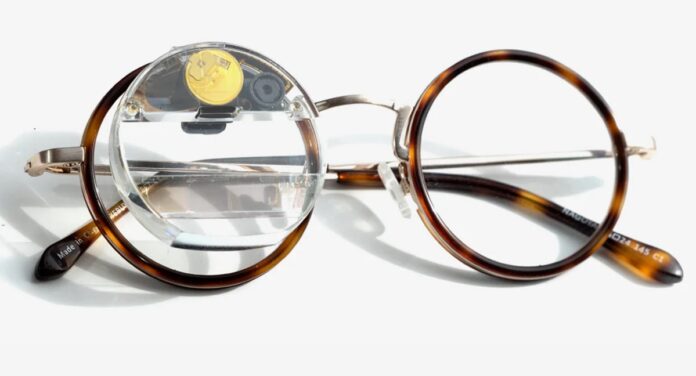At a time when gadget lovers around the world are enamored by the Vision Pro, one brave startup is trying to carve out a space for its augmented reality device that features a markedly different form factor than Apple's device.
Singapore-based Brilliant Labs announced its new product, Frame, a pair of lightweight AR glasses powered by a multi-modal artificial intelligence assistant called Noa. The glasses have caught the attention and investment of John Hanke, CEO of Niantic, the augmented reality platform behind games like Pokémon Go, although the funding he received from Hanke was not disclosed.
In a video demonstration, one of the founders of Brilliant Labs asked Noa by voice to introduce herself. After about three seconds, the agent generated and projected a text response onto the lenses.
In addition to voice commands, Noa is capable of visual processing, image generation and translation, thanks to the handful of AI models it has integrated: the Perplexity AI conversational search engine; Stability AI text-to-image model Stable diffusion; OpenAI's latest text generation model, GPT4; and the Whisper voice recognition system. Frame lenses have a resolution of 640 x 400 for displaying videos and photos.
With these features, a user shopping at a mall can ask Noa to check online prices for a pair of shoes they're looking at through Frame, for example.
“The future of human-AI interaction will come to life in innovative new wearable devices, and I am very excited to bring Perplexity's real-time response engine to the Brilliant Labs framework,” Aravind Srinivas, CEO and Founder, Perplexity he said in a statement.
The question is whether Frame will be responsive enough for any of its AI-generated responses to be useful. Brilliant Labs Bluetooth devices rely on a smartphone to access today's various AI models. However, over time the founders want to eliminate the phone host and integrate lightweight models of automatic learning directly on the glasses.
Frame emerged after Brilliant Labs' debut product Monocole, a single-lens AR device that attracted a loyal following in the open source hardware community thanks to its programmability and affordability. A group of Stanford students once turned the device into a dating assistant that made real-time suggestions about what to say to your date.
Frame will remain open source like its predecessor, meaning developers will gain access to resources including live documentation, open source codebases, and hardware schematics. They will also be able to adjust the parameters of the AI models compatible with Noa.
Unlike the bulky Vision Pro, the Frame is designed to be worn every day and comes with prescription lenses. Weighing 39 grams and with a thick round frame made of nylon plastic, the glasses are, as the company says, a “homage to the innovations and ideas introduced by figures in history such as John Lennon, Steve Jobs and Gandhi.”
Frame will be available for pre-order starting today and will sell for $349, the same price as Monocle. The devices will begin shipping in April.
Since its inception in 2019, Brilliant Labs has managed to attract a number of notable investors. In June, it secured a $3 million investment from Brendan Iribe, co-founder of Oculus; Adam Cheyer, co-founder of Siri; Eric Migicovsky, founder of Pebble and former partner at Y Combinator among others. Hanke's new capital injection brings the company's total financing to $6 million.




